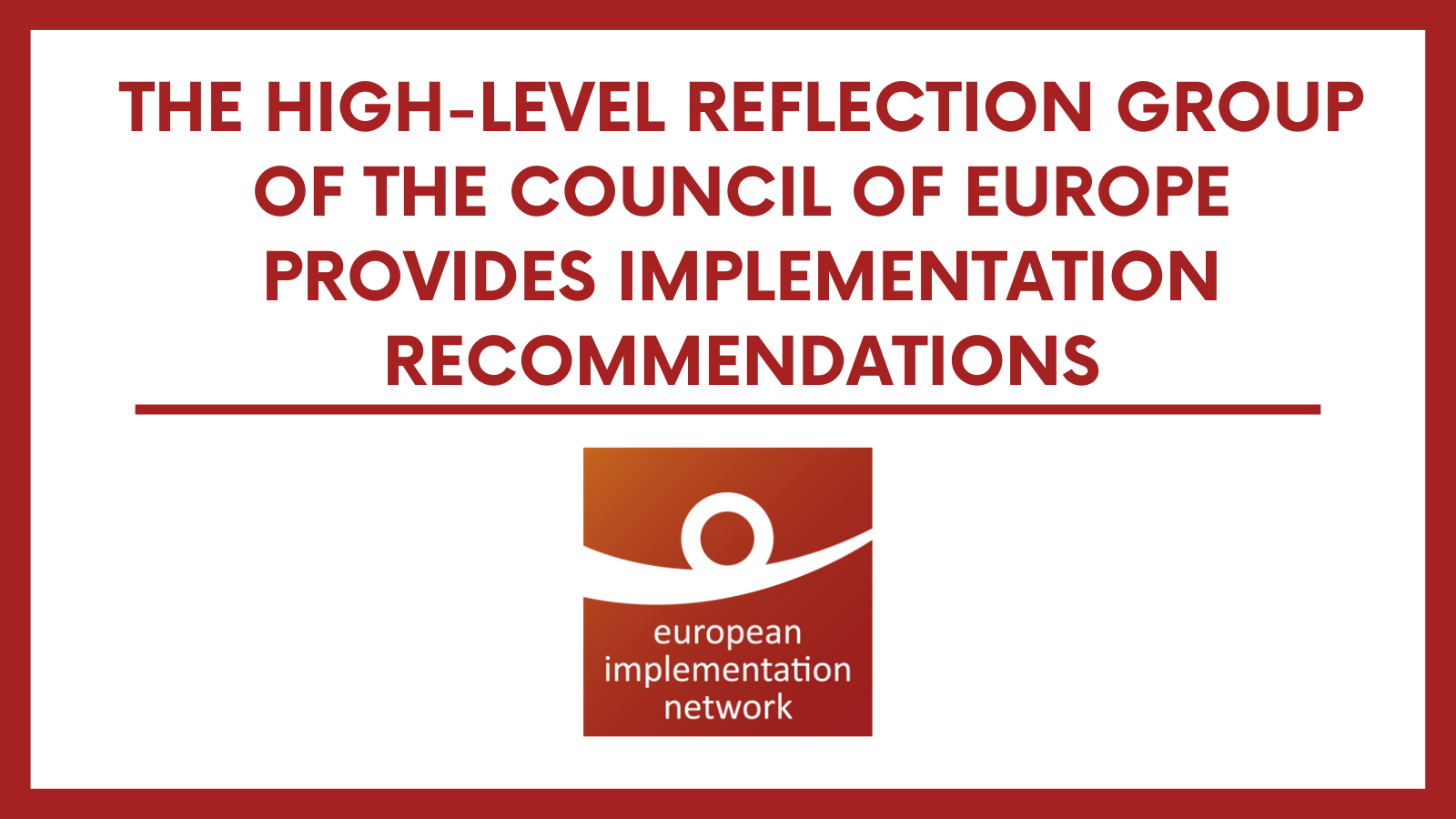CoE’s High-Level Reflection Group provides Recommendations on ECtHR Implementation in its October 2022 Report
/In October the High-Level Reflection Group of the Council of Europe published its’ report relating to the Council of Europe’s role in responding to the new realities and challenges facing Europe and the world. Among other important topics, it addresses the coherence and the effectiveness of the Council of Europe human rights protection system and the implementation of judgments of the European Court of Human Rights.
EIN welcomes the report, its’ prioritisation of the implementation of judgments of the European Court of Human Rights, as well as the recommendations set out by the High-Level Reflection Group.
In July 2022, EIN wrote to the High Level Reflection Group to express deep concern about the current outlook for the implementation of ECtHR judgments and setting out a series of proposals to address this issue. Full details of these proposals are available in the attached document. We glad to see that many of the proposals set out by EIN are also reflected in the High-Level Reflection Group’s approach.
The High-Level Reflection group recognises that "continued efforts are needed, in particular, to address present day and future challenges" with regard to ECtHR implementation. These challenges include the increasing number of judgments delivered by the ECtHR that are pending implementation and the increasing length of time it takes for cases to be fully implemented. The report also highlights “signs of an increasing lack of compliance with the most basic human rights standards”, “which requires serious attention and more resolute action on the part of states within the collective system of the Council of Europe.”
Within this section of the High-Level Reflection Group’s Report, the Group also provide 12 recommendations on ECtHR implementation. Below, we highlight those that were contained in EIN’s call for action:
“Organising and maintaining a permanent dialogue with the competent national authorities, both at technical and political level and engaging, as appropriate, with independent agencies, NHRIs, legal professionals, academia or civil society.”
We welcome this recommendation which also falls in line with EIN’s proposal on a biennial meeting for litigators, NGOs, and NHRIs that engage in the implementation monitoring process, similar in structure to the biennial meeting organised by the European Court of Human Rights.
“Envisaging an increase of the Council of Europe’s co-operation and assistance capacity to support the execution of judgments of the Court, possibly by committing part of the Ordinary Budget to such activities.”
This reflects EIN’s proposal for an increase in the frequency and transparency of technical co-operation projects.
“Considering the issuing of graduated sanctions in cases of persistent noncompliance with a judgment by a member state.”
This approach also reflects EIN’s Recommendation to develop a procedure that lies between Interim Resolutions and the infringement procedure, which can create real and credible pressure to implement judgments.
Finally, we also appreciate the acknowledgement, in the High-Level Reflection Group’s report, that an increase of the capacities of the Department for the Execution of Judgments should be envisaged. EIN has advocated for an increase in funding for the Department for the Execution of Judgments; the problem of non-implementation is a resource issue, and adequate resources need to be allocated to this process.
We hope that the recommendations of the High-Level Reflection group can be put into action, in order to urgently address the non-implementation of ECtHR judgments.


